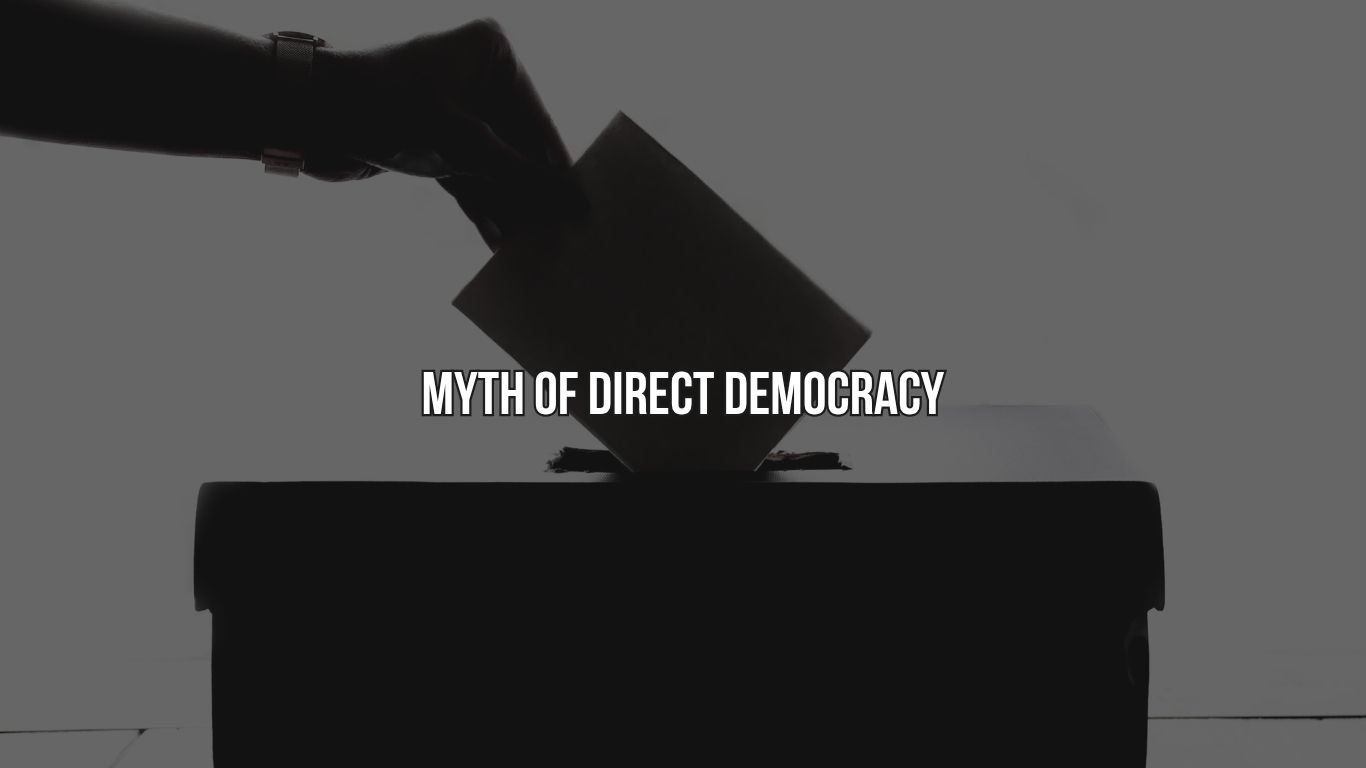
Direct democracy feels empowering in a broken system. But unless we fix the trust and accountability mechanisms within a representative democracy, we’ll just keep repeating the same cycle.
In Serbia, we’re witnessing the largest anti-government protest in the last 25 years, possibly the largest ever, despite ongoing population decline. The immediate trigger was the collapse of a canopy that killed 16 people. But I don’t want to focus on why the protest started or speculate about the movement’s future.
What matters is this: the protests are being led by university students. This student movement is impersonal, and there are no individual leaders. All decisions regarding actions and protests are made collectively in plenums. It’s a direct democracy where each faculty and university has the autonomy to organize based on their local context. And they’ve managed to mobilize people impressively.
This success has sparked a wider public conversation. More and more citizens are expressing a desire for direct democracy as an alternative to the broken system of representative democracy we currently have. Switzerland is often cited as the ideal model. I understand the appeal. The idea is simple and powerful: we, the people, should have direct power over the decisions that affect us. We already give the government legitimacy, so why not cut out the middleman? Why not simplify everything? After all, our representatives are corrupt, selected behind closed doors, and leave us with no real influence.
But direct democracy isn’t such a great idea for many reasons. And most of them boil down to one fundamental principle: division of labor. The same principle that took us from caves to the Moon.
Take medical professionals, for example. They go through years of rigorous education and training. They can do that because they don’t have to split their time between farming, construction, sewing, carpentry, and every other essential task. Others handle those. And (hopefully) everyone else visits medical professionals when they have a health problem.
The same is true for almost every profession. You want tasks to be handled by trained people who dedicate time to doing them well. Imagine if everyone in a hospital did medical tasks occasionally when they found the time. The surgeon is here today but will be gone tomorrow. The anesthesiologist might show up next week. You can see how chaotic and dangerous that would be.
This same logic applies to democracy.
Imagine finishing work and, instead of relaxing with your family, you’re expected to read proposals, study draft bills, attend committees, and vote every few days. That’s the hidden labor of democracy: boring, detailed, and time-consuming. Parliaments and representatives exist (besides other reasons): to do that work on our behalf. Our main democratic duty is to choose the right people to represent us.
And let’s be honest: in Serbia, we haven’t done a good job of that for at least the past 13 years. If we had, we wouldn’t be seeing the largest protest movement in decades. In any direct democracy system, the realistic outcome is that some people naturally invest more time and energy than others. Over time, they’d become unofficial representatives without accountability or oversight. I’m not saying we need career politicians, but if someone is making decisions that affect everyone, they must dedicate serious time to it. You can’t do that with half your attention.
Yes, democracy is broken in many places if it ever truly worked. But the solution isn’t bypassing the system. The solution is rebuilding trust and introducing strong corrective mechanisms.
And again, we return to the division of labor. It only works when trust exists. We trust doctors, teachers, plumbers, and construction workers to know what they do. Googling symptoms doesn’t make you a doctor. Replacing a faucet doesn’t make you a plumber. Our lives function because we trust others to do their jobs well enough not to harm us. But we don’t trust politicians for good reason.
A better approach is to build systems that prevent unfit people from gaining power and allow us to peacefully remove them if they do. For example, if my city elects a representative to the national parliament, we, the citizens, should have the power to recall that person and choose someone else.
If democracy is to survive, we must rebuild trust between citizens and between citizens and institutions. That trust won’t appear overnight and won’t exist without accountability. We need to restore responsibility in politics and, frankly, in all professions.
As for the mechanisms to build that trust and accountability, that’s a topic for another time.